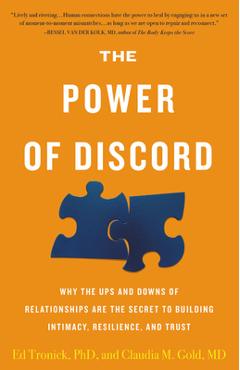The Developmental Science of Early Childhood: Clinical Applications of Infant Mental Health Concepts from Infancy Through Adolescence - Claudia M. Gold

Detalii The Developmental Science of Early
libris.ro
267.84 Lei
297.6 Lei
Psychology
Claudia M. Gold
The Developmental Science of Early - Disponibil la libris.ro
Pe YEO găsești The Developmental Science of Early de la Claudia M. Gold, în categoria Psychology.
Indiferent de nevoile tale, The Developmental Science of Early Childhood: Clinical Applications of Infant Mental Health Concepts from Infancy Through Adolescence - Claudia M. Gold din categoria Psychology îți poate aduce un echilibru perfect între calitate și preț, cu avantaje practice și moderne.
Preț: 267.84 Lei
Caracteristicile produsului The Developmental Science of Early
- Brand: Claudia M. Gold
- Categoria: Psychology
- Magazin: libris.ro
- Ultima actualizare: 28-10-2025 01:22:05
Comandă The Developmental Science of Early Online, Simplu și Rapid
Prin intermediul platformei YEO, poți comanda The Developmental Science of Early de la libris.ro rapid și în siguranță. Bucură-te de o experiență de cumpărături online optimizată și descoperă cele mai bune oferte actualizate constant.
Descriere magazin:
The field commonly known as infant mental health integrates current research from developmental psychology, genetics, and neuroscience to form a model of prevention, intervention, and treatment well beyond infancy. This book presents the core concepts of this vibrant field and applies them to common childhood problems, from attention deficits to anxiety and sleep disorders. Readers will find a friendly guide that distills this developmental science into key ideas and clinical scenarios that practitioners can make sense of and use in their day-to-day work. Part I offers an overview of the major areas of research and theory, providing a pragmatic knowledge base to comfortably integrate the principles of this expansive field in clinical practice. It reviews the newest science, exploring the way relationships change the brain, breakthrough attachment theory, epigenetics, the polyvagal theory of emotional development, the role of stress response systems, and many other illuminating concepts. Part II then guides the reader through the remarkable applications of these concepts in clinical work. Chapters address how to take a textured early developmental history, navigate the complexity of postpartum depression, address the impact of trauma and loss on children\'s emotional and behavioral problems, treat sleep problems through an infant mental health lens, and synthesize tools from the science of the developing mind in the treatment of specific problems of regulation of emotion, behavior, and attention. Fundamental knowledge of the science of early brain development is deeply relevant to mental health care throughout a client\'s lifespan. In an era when new research is illuminating so much, mental health practitioners have much to gain by learning this leading-edge discipline\'s essential applications. This book makes those applications, and their robust benefits in work with clients, readily available to any professional.

Produse asemănătoare

Case Studies and Theory Development in the Social Sciences, Paperback/Alexander L. George
![]() elefant.ro
elefant.ro
Actualizat in 28/10/2025
238.99 Lei

The Art and Science of Personality Development, Paperback/Dan P. McAdams
![]() elefant.ro
elefant.ro
Actualizat in 28/10/2025
223.99 Lei

Initiation Science: And the Development of the Human Mind, Paperback/Rudolf Steiner
![]() elefant.ro
elefant.ro
Actualizat in 28/10/2025
115.99 Lei

The Remnants of Race Science. UNESCO and Economic Development in the Global South, Paperback/Sebastian Gil-Riano
![]() elefant.ro
elefant.ro
Actualizat in 28/10/2025
216.99 Lei
Produse marca Claudia M. Gold

The Power of Discord: Why the Ups and Downs of Relationships Are the Secret to Building Intimacy, Resilience, and Trust - Claudia M. Gold
![]() libris.ro
libris.ro
Actualizat in 28/10/2025
214.27 Lei
